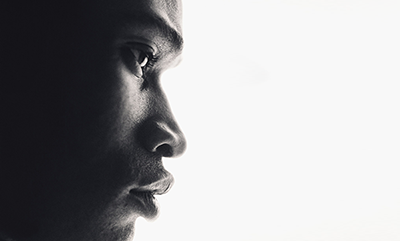Intentional Injuries Have Significant Emotional Effects on Black Men.
 Emotional responses to traumatic injuries among Black men may vary by injury intentionality, according to a study led by a School of Public Health doctoral student.
Emotional responses to traumatic injuries among Black men may vary by injury intentionality, according to a study led by a School of Public Health doctoral student.
The study, published in Injury, found that in addition to the effects of injury intentionality on emotional responses, exposure to neighborhood violence is a chronic stressor, with profound effects on the recovery of urban Black men after intentional injury.
Injuries account for about 60 percent of all deaths among Americans age 1 to 44 years. Approximately 27 million people are treated for injuries in emergency departments every year. Black men are disproportionally affected by traumatic injuries; unintentional injuries are the third leading cause of death, and homicide is the fifth leading cause among Black men. In addition to the physical impact, traumatic injuries are linked to mental health challenges—however, there is limited research addressing the emotional responses to traumatic injuries among Black men.
“Understanding emotional responses to intentional and unintentional injuries can help inform and improve public health planning and treatment efforts for individuals vulnerable to poor mental health after injury,” the authors wrote.
The researchers conducted qualitative interviews with 74 Black men who were traumatically injured three months after discharge from an urban trauma center in the northeastern United States. They used systematic thematic analysis to identify post-trauma emotional responses to intentional and unintentional injuries.
The researchers found that intentionality, the nature of the injury, and neighborhood exposure to violence all played a role in emotional responses and recovery from injuries. Moreover, survivors of intentional injury, unlike survivors of unintentional injury, reported feelings of anger and distrust of others and ultimately distanced themselves from people in their lives.
“Our findings emphasize the importance of future research on the role of injury intentionality in the development of emotional and psychological responses among urban Black men, and among other individuals in marginalized or disadvantaged communities,” the authors wrote. “Future research should examine social support received among survivors of unintentional and intentional traumatic injuries and the effects of this support on mental health outcomes.”
The study was led by Tammy Jiang, a PhD student in epidemiology, who conducted her research during a mentoring experience at Penn Nursing. Co-authors from Penn Nursing included Jessica L. Webster, senior clinical research coordinator, and Andrew Robinson, data coordinator. The other authors were Nancy Kassam-Adams, associate director for behavioral research at the Center for Injury Research and Prevention at Children’s Hospital of Philadelphia, and Therese S. Richmond, associate dean for research and innovation at Penn Nursing.
The study was funded by a grant from the National Institute of Nursing Research.